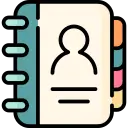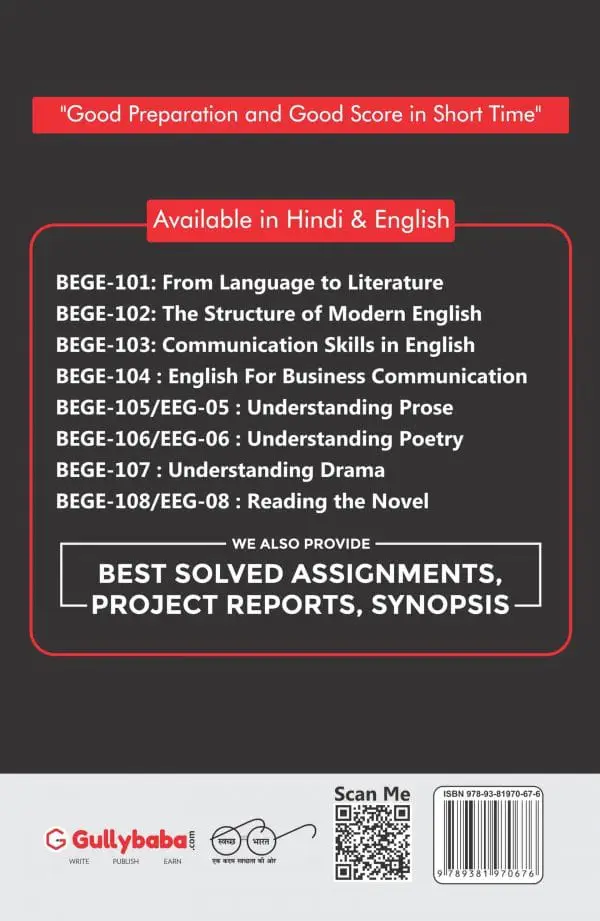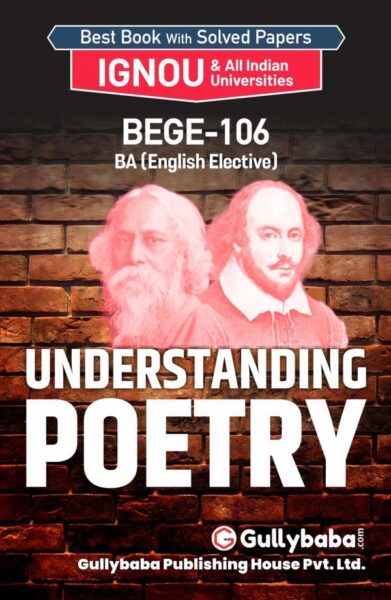BEGE-103 English Topics Covered
Block 1 – Some Concepts for Communication in English
- Unit 1 – English-In India and the World
- Unit 2 – Global English and Indian English
- Unit 3 – The Globalization of Communications: A Global Village
- Unit 4 – Globalization and Communication Skills
- Unit 5 – Verbal and Non Verbal Communication
Block 2 – Listening and Speaking in Informal Contexts
- Unit 1 – Informal Interpersonal Functions
- Unit 2 – Small Talk
- Unit 3 – Making Enquiries/Asking Questions
- Unit 4 – Agreeing and Disagreeing
- Unit 5 – Conversation Conventions
Block 3 – Listening and Speaking in Formal Contexts
- Unit 1 – Preparing for Interviews
- Unit 2 – Interview and Job Search Etiquette
- Unit 3 – Group Discussions and Meetings
- Unit 4 – Oral Presentation Skills and Public Speaking–1
- Unit 5 – Oral Presentation Skills and Public Speaking-2
Block 4 – Writing
- Unit 1 – Writing a Cv or Resume
- Unit 2 – Letters: Structure and Conventions
- Unit 3 – The Language of Formal Letters
- Unit 4 – Some Kinds of Formal Letters
- Unit 5 – Job Related Letters
Block 5 – Print Media
- Unit 1 – Language of Formal Reports
- Unit 2 – Some Kinds of Official Reports
- Unit 3 – Writing Summaries and Notes
- Unit 4 – Some Kinds of Official Reports
- Unit 5 – Language of Formal Reports
Block 6 – Mediated Communication
- Unit 1 – Mediated Communication
- Unit 2 – The Radio
- Unit 3 – Television
- Unit 4 – Producing Content for Radio and Television
- Unit 5 – Listening to English over the Media
Block 7 – The World Wide Web and Corporate Communications
- Unit 1 – Networks and Multimedia
- Unit 2 – Writing for the World Wide Web
- Unit 3 – Corporate Communications
- Unit 4 – Using the Right Words: American or British?
- Unit 5 – Language Skills for Web Content Writing
Block 8 – Using Language for Communications: Rhetoric and Argumentation
- Unit 1 – The Non-Literal use of Language
- Unit 2 – Rhetoric and Grammar
- Unit 3 – A First Guide to Argumentation
- Unit 4 – More Fallacies and Arguments in Advertising
- Unit 5 – Presuppositions, Dilemmas and Language











